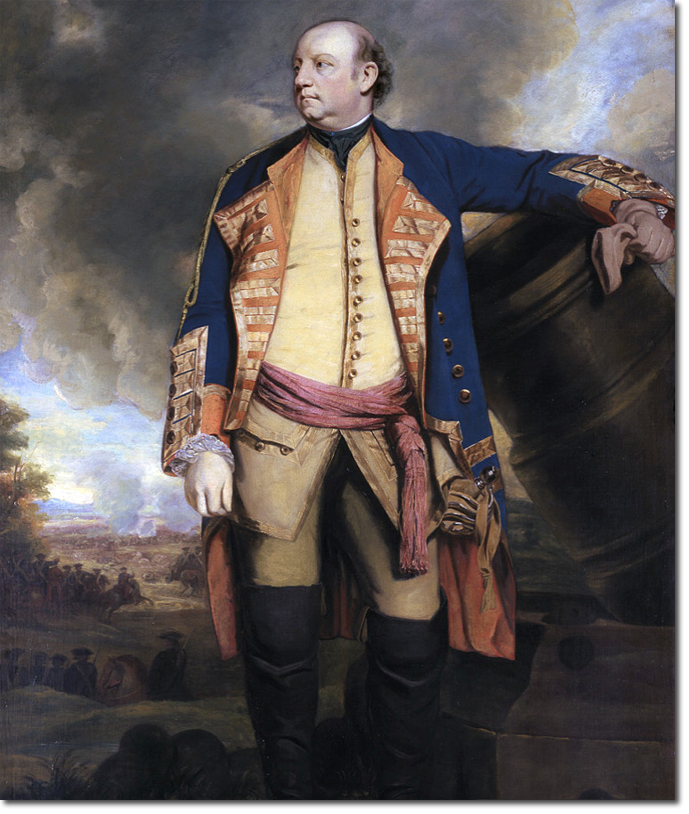|
|


|
|
John Manners was the eldest son of the 3rd Duke of Rutland and the Hon. Bridget Sutton. He was born on 2 Jan 1721. His father outlived him so he did not inherit the dukedom but was known by his father’s subsidiary title, Marquess of Granby. He was educated at Eton and studied Law at Trinity, Cambridge. He was a politician as well as a soldier, returned as MP for Grantham in 1741 until 1754, and Cambridgeshire from 1754 until his death in 1770.
He was on Cumberland’s staff at Culloden in 1746 and was Colonel of a Rutland volunteer regiment, the Leicestershire Blues, which finally mutinied for want of back pay. Granby generously reimbursed them out of his own money before they were disbanded. He was then appointed Colonel of the Royal Horse Guards in 1758. He accompanied the regiment in the Seven Years War and was present at Minden where he suffered the indignity of being second in command to Lord Sackville. After Sackville’s disgrace he was put in charge of the British forces and appointed Lieutenant-General of the Ordnance on 15 Sep 1759, and then MGO in 1763. He was a competent and popular general, with a real concern for soldier’s welfare, and proper care for the wounded and sick. Portraits show him in a red faced blue coat which is either Royal Artillery or the Blues. The two famous portraits of him by Sir Joshua Reynolds depict him wearing the coat of the Blues. The earlier portrait c1763 shows him in a buff waistcoat leaning on a mortar (seen here) while the second has him wearing a steel cuirass and leaning on his charger with a black groom on the other side. Granby led the charge of the cavalry at Warburg, riding in front of the Blues. He famously lost his hat when the charge gathered pace, inspiring the phrase ‘going at it bald-headed’ and initiating the Royal Horse Guards tradition of being the only regiment to salute without headgear. He was made Commander-in-Chief on 13 Aug 1766. He made bad decisions as a politician, mostly concerning John Wilkes, so that he had to resign as C-in-C and MGO shortly before his death. He was a generous man but spent his time in hard drinking, gambling and hunting. He had a cavalier attitude to debt repayment and was prone to procrastination. He was heavily in debt in 1770 and died in Scarborough on 18 Oct 1770 at the age of 49. He was married in 1750 to Lady Frances Seymour, daughter of the 6th Duke of Somerset. They had two daughters and three sons. He also had an illegitimate daughter, Anne Manners. |
Armed Forces | Art and Culture | Articles | Biographies | Colonies | Discussion | Glossary | Home | Library | Links | Map Room | Sources and Media | Science and Technology | Search | Student Zone | Timelines | TV & Film | Wargames
